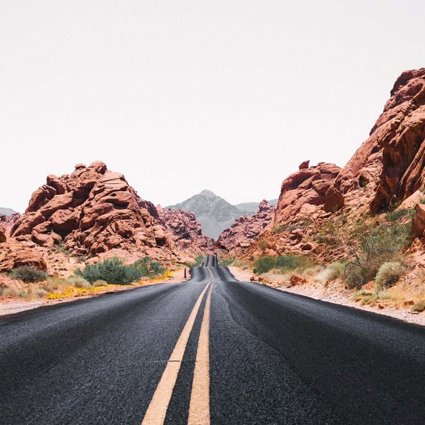
A sustainable future for Dubai?
In this lesson students understand that the construction boom in Dubai raises a variety of environmental issues
Students consider the relative importance of different environmental issues in Dubai and go on to design environmentally friendly fantasy architecture, based on an actual location in Dubai.
Key questions
What are the environmental issues that impact on the rapid growth of Dubai?
How could architecture be designed to be more environmentally sustainable?
What is the likely future for Dubai?
What are the environmental issues that impact on the rapid growth of Dubai?
The sustainability of the new booming Dubai is a worry for environmentalists. In recent global analysis of ecological resource use, the UAE came top as the least environmentally friendly country owing to its heavy reliance on air conditioning and desalinated water just to survive (in the summer it can be more than 40 degrees Celsius outside) - each resident in Dubai uses twice the resources of the average Briton.
Turning sand (which Dubai has lots of) into real estate to sell for cash is one of the strategies of economic diversification away from oil. Building ‘The World' on its doorstep in order to attract the world to Dubai is having environmental costs. 33 million cubic metres of sand and shell from the sea bed have been dredged up to make the islands. Plumes of sediment disturbed by the developments have smothered sparse coral outcrops and dredging is causing permanent changes to current systems in the Gulf that carry developing fish and coral through the marine ecosystem.
Some environmentalists even think that this is short-term impact and that new dive sites will be created from the islands which will be a positive thing.
But would projects like this be permitted in Europe? Are attitudes toward the environment different?
How could architecture be designed to be more environmentally sustainable?
The challenge of building a sustainable building in the desert invites some interesting ideas. These include a revolving skyscraper powered by wind turbines placed between each floor. Each floor rotates separately meaning the building's profile will constantly change. The idea is that the tower will generate surplus energy to power other buildings.
What is the likely future for Dubai?
Dubai is greatly dependent on the availability of cheap energy, and its per capita consumption of energy is amongst the highest in the world. Cheaply available oil is used to desalinize the water that irrigates the lush tropical landscapes implanted in its desert, and that supports the water-spending habits of its leisure tourism and residents. It is used to air-condition its massive interior spaces during the gruelingly hot summer months. It is used to run motor vehicles in a city designed exclusively for automobiles (which increasingly are stuck in traffic) and not for pedestrians.
As global warming is becoming a more serious and real threat to the livelihood of the planet, there is a rising awareness that such a lifestyle that is dependent on an intensive consumption of fossil fuels may not be sustainable. Dubai's coastal location and low-lying reclaimed land mean it is at increased risk from flooding as sea-levels rise.
The city's location requires an almost total dependency on medium-haul air travel to survive, most visitors coming from Europe and India.
Links
Starter
Watch a futuristic promotional video from You Tube.
Can you use Google Earth to locate Dubai and find the emerging artificial islands – The Palm Jumeirah and ‘The World’?
Main Activity
In pairs work carry out the diamond 9 on sustainability issues in Dubai.
Organize the issues to in order of their importance when designing a new building.
Read an article describing one of the new projects in Dubai such as Hydropolis or the concept for a wind powered rotating skyscraper.
Design a fantasy building for Dubai.
Locate your building accurately using Google Earth.
Use ideas from the diamond 9 exercise to ensure it is designed to be as sustainable as possible.
You must consider the desert climate and you should annotate your design to explain the design features.
Plenary
Read the short blog extract 'The Future for Dubai' and tick the scenario you think is most likely.
Take a poll of the the views from the whole class.
File nameFiles
File type
Size
Download